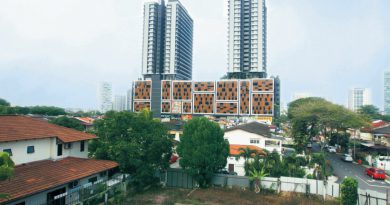Revive KL-Singapore HSR, MRT circle line to spur property market
Property players hoped that the government will revive the Kuala Lumpur-Singapore high-speed rail (HSR) and Mass Rapid System (MRT) circle line to attract more inflow and foreign funds into the country and improve the property market.
The Association of Valuers, Property Managers, Estate Agents and Property Consultants in the Private Sector Malaysia (PEPS) also hoped that the government will revive Malaysia My Second Home (MM2H) programme.
In a statement on its Budget 2021 wishlist, PEPS said reviving mega projects such as the HSR and MRT Circle Line, as well as Bandar Malaysia would create a positive multiplier effect.
The construction of the HSR project has been suspended since September 2018 and was due to resume at the end of May, but was deferred further until the end of the year.
Singapore Prime Minister Lee Hsien Loong said in a ceremony on July 30 this year to mark the official resumption of the Rapid Transit System linking Woodlands and Johor Baru that Malaysia had given Singapore certain proposals on changes to the HSR project and that discussions were ongoing.
On August 26, 2020, MyHSR Corporation launched two tenders (for a land consultant as well as an environmental, social, and heritage impact assessment consultant) for the HSR project.
The HSR line is 350 km long and is expected to reduce travel time between Kuala Lumpur and Singapore to 90 minutes.
Meanwhile, PEPS said that the government should expand tax incentives and tax allowances to property developers and contractors who are adopting Industrialised Building System (IBS) in their projects.
“Government-linked companies should also release their landbank for joint ventures with developers for affordable housing development,” it said.
PEPS recommended the formation of National Housing Centralised Corporation (NHCC) to plan, coordinate, and implement the government’s blueprint and identify suitable developers for joint venture developments.
Its recommendations also include the NHCC to liaise with government agencies and state governments to release suitable land banks for affordable housing.
PEPS said the NHCC should also study and carry out research on supply and demand, income levels, household incomes, affordability, pricing issues, and buyer preferences to ensure effective demand.
It said to revive the property market, the government could assist developers by reducing compliance costs, and allow a gradual release of Bumiputera sales quota from the end of the first year of construction to completion.
PEPS also hoped that the stamp duty waiver which currently applies to primary sales under the Home Ownership Campaign (HOC) will also apply to both primary and secondary residential sales in 2021.
PEPS also hoped that the stamp duty for property transactions worth more than RM1 million will be reduced to three per cent from the current four per cent.
On Real Property Gains Tax (RPGT), PEPS urged the government to waive the tax in 2021 for property transactions worth RM10 million and below.
PEPS said the waiver should apply to citizens, permanent residents, and companies only.
It said that for non-citizens, the current tax rate of 30 per cent for properties sold within the first five years and 10 per cent for those disposed of the sixth year onwards should remain.
“For property transactions in 2021 that is above RM10 million, the proposed RGPT rate should be 15 per cent of the chargeable gain after deducting the first RM10 million,” it said.
RPGT is a measure by the government to curb speculation in the property market.
Source: NST


